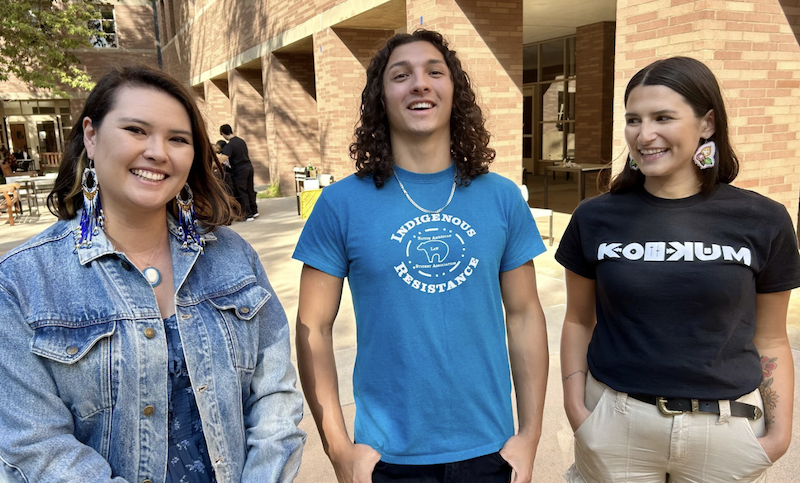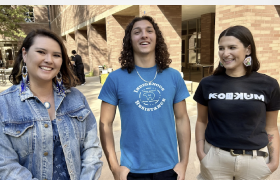LAist
UCLA established its Tribal Legal Development Clinic more than 25 years ago as a class to help law school students learn the legal needs of Native Americans and encourage more students to become tribal lawyers.
It’s come a long way: On Monday, the San Manuel Band of Mission Indians presented the clinic with a $2.2 million grant to support its work helping tribes with issues big and small.
“This grant is extraordinary,” said Mica Llerandi, the clinic’s director and one of the professors.

The clinic seeks to create a pipeline of tribal lawyers, and part of the grant will be used to pay for staff salaries.
“It’s also going to help fund students who are traveling to Indian country to see their tribal clients, to experience the conditions that tribal communities are living in, and understanding the full impact of their work,” Llerandi said





